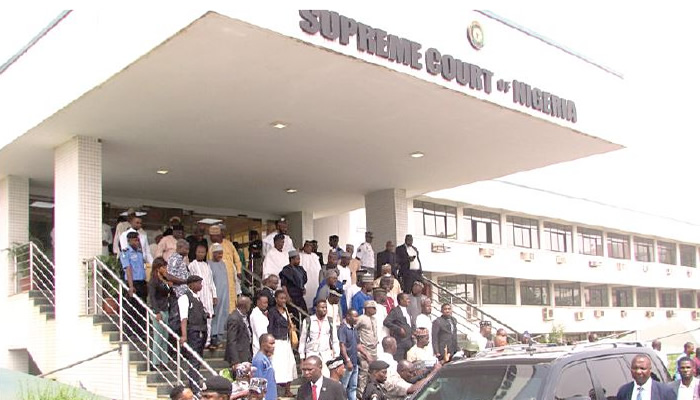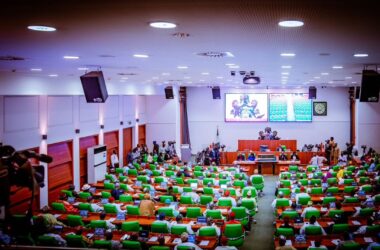The Supreme Court of Nigeria has reserved judgment in a legal case brought by 16 state governments, questioning the constitutionality of the laws that led to the establishment of the Economic and Financial Crimes Commission (EFCC) and related bodies.
The case, which has attracted widespread attention, was heard by a seven-member panel of justices led by Justice Uwani Abba-Aji.
The case was originally filed by the Kogi State Government, with the state’s Attorney General and Commissioner for Justice representing them. Over time, 15 other states expressed interest in joining the suit as co-plaintiffs, turning the case into a significant legal battle involving multiple regions of the country.
The states that have aligned with Kogi in this legal challenge include Ondo, Edo, Oyo, Ogun, Nasarawa, Kebbi, Katsina, Sokoto, Jigawa, Enugu, Benue, Anambra, Plateau, Cross River, and Niger.
These states are collectively seeking to challenge the legal framework that underpins the existence and operations of the EFCC, a federal agency responsible for investigating and prosecuting economic and financial crimes in Nigeria.
The states argue that the laws establishing the EFCC overreach the powers granted to the federal government by the constitution, infringing on the rights of state governments.
Their contention is that some aspects of the EFCC’s operations may violate the principles of federalism by extending too much control over state-level governance, especially in financial matters.
On Tuesday, the Supreme Court panel listened to arguments from both sides. Lawyers representing the states presented their case, highlighting what they believe are constitutional violations in the formation and functioning of the EFCC.
In response, the defense team, likely representing the federal government and the EFCC, made their arguments in favor of the agency’s legal standing. The Supreme Court, after hearing these submissions, decided to reserve its judgment, meaning that a final ruling will be delivered at a later date.










